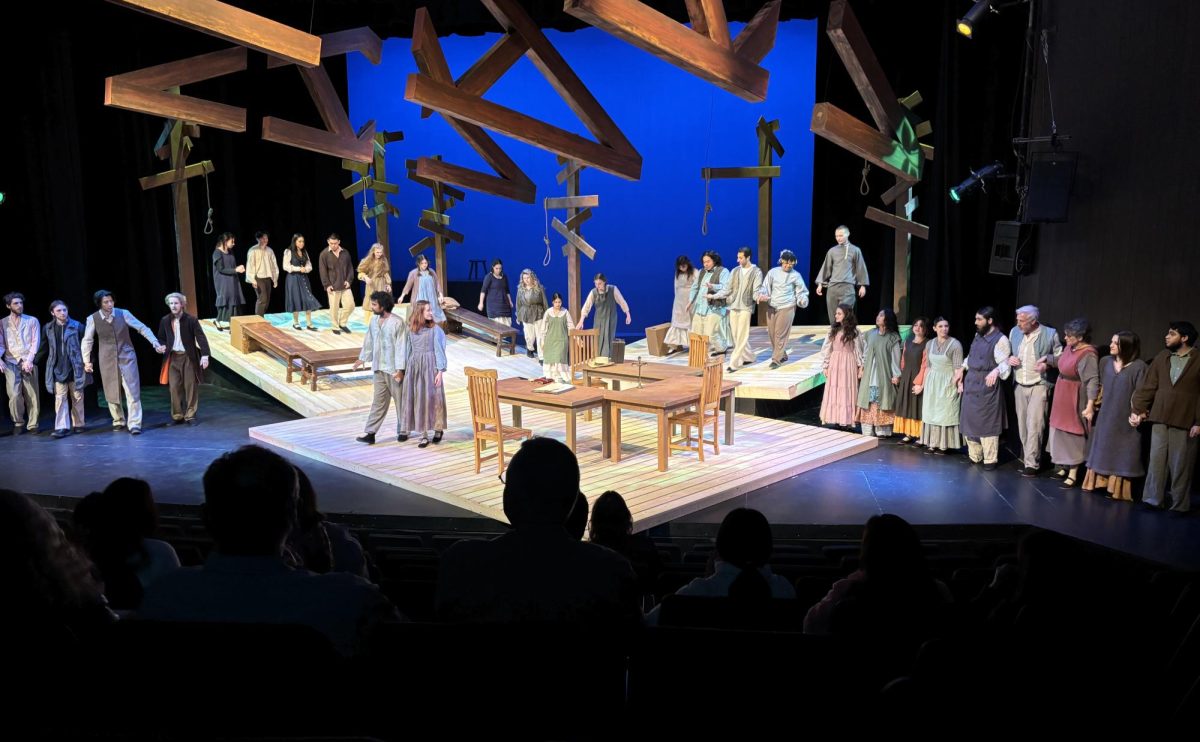All too often a message flashes across the computer screens of students trying to register for classes. It warns that “the maximum number of cookie values” has been reached, all current browser windows must be closed and the user must log in again.
With that, the window closes.
But at the end of summer session 2009, the beta version of an alternative to WebAdvisor will be released in the form of an educational social networking site known as “MySite Portal.”
The portal project is in development for the Contra Costa County Community College District, said Mojdeh Mehdizadeh, the district’s chief of information technologies.
It will incorporate aspects of WebAdvisor with a social networking interface which will allow for students to create “portals,” which are essentially gateways to relevant information, such as a calendar for classes, unofficial transcripts and other WebAdvisor materials. It even allows for a certain degree of personalization, such as allowing for students to set up an RSS feed.
“[It will] centralize information that is pertinent to you,” said Yvonne Canada, sr. academic/student services manager at the San Ramon campus. “[It’s] something to make your own.”
When students register for classes, the portal automatically will update the calendar for those classes. It will also display alerts at the front of the page, notifying students of unpaid dues or late library books.
Mehdizadeh said the website also allows faculty to upload information for their classes, including the syllabus, assignment changes class cancellations or room changes.
“[It will] provide better abilities to communicate with students,” Mehdizadeh said.
MySite will eventually integrate all of WebAdvisor’s features, although the district will continue to keep WebAdvisor running for a couple more years, she said.
In its second phase, the portal project will give students a personalized email account with the school domain.
The technical aspect of the project is being created by the district’s information technology and research division, with a committee of staff, managers and students giving feedback and ideas.
Mehdizadeh said MySite would be similar to Facebook in how it constantly evolves.
“Webports are being made to use in this environment,” Mehdizadeh said. “[We will] continue to build on the portal project.”
All too often a message flashes across the computer screens of students trying to register for classes. It warns that “the maximum number of cookie values” has been reached, all current browser windows must be closed and the user must log in again.
With that, the window closes.
But at the end of summer session 2009, the beta version of an alternative to WebAdvisor will be released in the form of an educational social networking site known as “MySite Portal.”
The portal project is in development for the Contra Costa County Community College District, said Mojdeh Mehdizadeh, the district’s chief of information technologies.
It will incorporate aspects of WebAdvisor with a social networking interface which will allow for students to create “portals,” which are essentially gateways to relevant information, such as a calendar for classes, unofficial transcripts and other WebAdvisor materials. It even allows for a certain degree of personalization, such as allowing for students to set up an RSS feed.
“[It will] centralize information that is pertinent to you,” said Yvonne Canada, sr. academic/student services manager at the San Ramon campus. “[It’s] something to make your own.”
When students register for classes, the portal automatically will update the calendar for those classes. It will also display alerts at the front of the page, notifying students of unpaid dues or late library books.
Mehdizadeh said the website also allows faculty to upload information for their classes, including the syllabus, assignment changes class cancellations or room changes.
“[It will] provide better abilities to communicate with students,” Mehdizadeh said.
MySite will eventually integrate all of WebAdvisor’s features, although the district will continue to keep WebAdvisor running for a couple more years, she said.
In its second phase, the portal project will give students a personalized email account with the school domain.
The technical aspect of the project is being created by the district’s information technology and research division, with a committee of staff, managers and students giving feedback and ideas.
Mehdizadeh said MySite would be similar to Facebook in how it constantly evolves.
“Webports are being made to use in this environment,” Mehdizadeh said. “[We will] continue to build on the portal project.”








































































